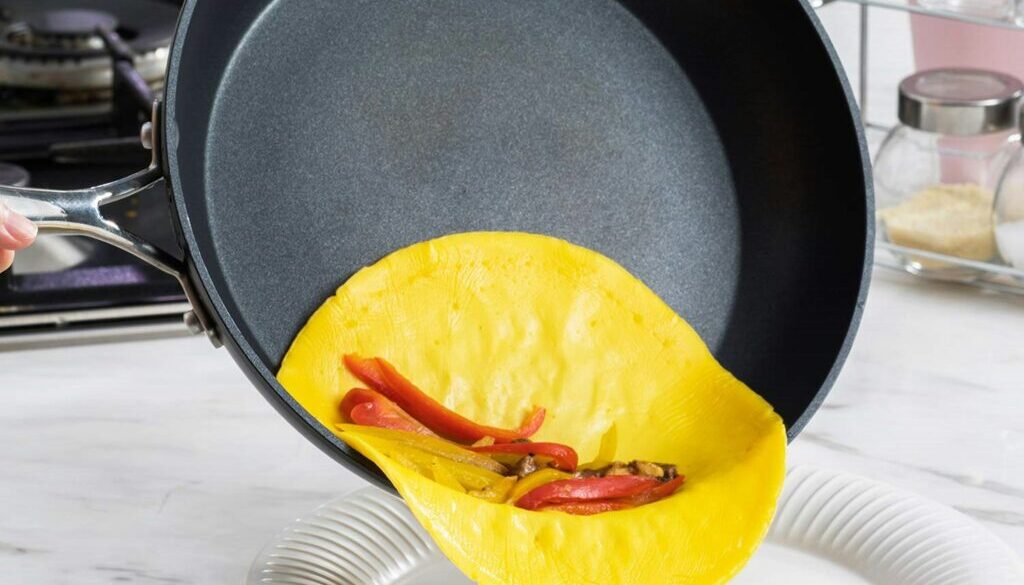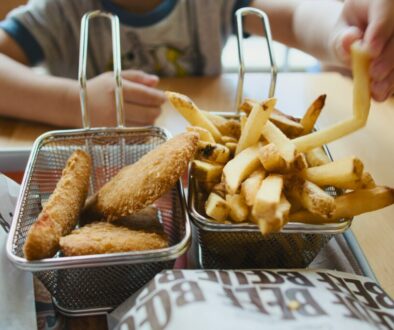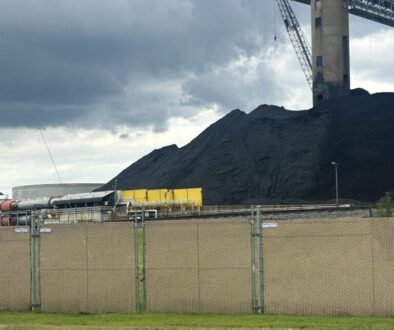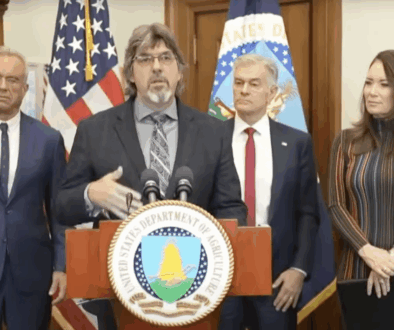Industry, environmental groups spar over California bill to ban PFAS in cookware
Listen to the audio version of this article (generated by AI).
As US states increasingly pass laws to limit PFAS chemicals in consumer products, a debate is heating up over a California bill that proposes banning the sale of cookware with intentionally added “forever chemicals” beginning in 2030.
The bill, SB 682, would also prohibit the sale of cleaning products, dental floss, food packaging and other products with intentionally added PFAS beginning in January 2028.
Nonstick cookware is often coated with polytetrafluoroethylene (PTFE), a fluoropolymer also called Teflon and one of thousands of chemicals that belong to the class of per- and polyfluoroalkyl substances (PFAS), some of which have been linked to health impacts including cancers, immune system problems and reproductive issues. PFAS are often called forever chemicals for their persistence in the environment.
The bill’s supporters argue that PTFE from cookware adds to the flow of forever chemicals in household waste, adding to the costly public burden of treating PFAS-tainted wastewater. Further, they point to recent research on possible reproductive health harms from exposure and suggest ongoing PTFE production continues a decades-long legacy of polluting communities where Teflon is made.
A coalition of cookware industry leaders, however, is pushing back against similar proposed bans across the country, insists PTFE is safe and warns that California’s food service industry – and beyond – would take a hit if the bill is enacted.
“It’s way, way more than a nonstick frying pan on top of someone’s stove,” said Steve Burns, the president of the nonprofit Cookware Sustainability Alliance (CSA), which has been actively opposing proposed bans on PFAS in cookware in multiple states. “The way that California’s bill is drafted, it will include every coffeemaker, every Dunkin’ Donuts or 7-Eleven, it will be every walk-in refrigerator.”
Susan Little, the California legislative director for the Environmental Working Group (EWG), one of the bill’s co-sponsors, said the bill would apply only to cookware sold or distributed after 2030, so those already in homes or restaurants would not be banned, and that the bill targets only the surfaces of cookware.
“Inaccessible electronic components of devices, like refrigerators or coffeemakers, are not covered by this law,” she said.
If the California bill becomes law, it would send a strong signal to the marketplace nationwide, Little said.
“Since California has the fourth largest economy in the world, the SB 682 bans will apply to a very large market share of products, and should drive PFAS removal from … products nationwide,” she said.
The bill reached Governor Gavin Newsom’s desk last week. The governor is expected to either sign or veto the bill by October 12, after which it would otherwise simply become law if he chooses not to act.
Opposition gains momentum
Almost 100 health and environmental groups are registered supporters of SB 682, including the Natural Resources Defense Council, Breast Cancer Prevention Partners, Clean Water Action and the California Association of Sanitation Agencies, which co-sponsored the bill with EWG.
Ten groups oppose the bill, including CSA, a partnership between four major cookware companies launched last year that includes the Meyer Corporation, which has a long-standing partnership with celebrity chef and television host Rachael Ray. Other opponents to the California bill include the California Chamber of Commerce, the California Manufacturers and Technology Association and the kitchenware retail company Sur La Table.
Rachael Ray, David Chang and other well-known California chefs submitted letters urging the state to reject SB 682.
“I respect and share the desire to protect Californians and our planet, but I urge you to look closely at the science before moving forward with legislation that could unintentionally do more harm than good,” wrote Ray, arguing that PTFE offers families across the country easy-to-clean cookware for making healthy meals without the need to add extra oils or fats to a pan’s surface.
In January 2025, Minnesota became the first state to ban PFAS in cookware, including Teflon, along with PFAS in carpets or rugs, upholstered furniture, tampons and various other products. Colorado and Maine are set to ban PFAS in cookware beginning in January 2026, while Connecticut passed legislation to do the same starting in January 2028.
Vermont recently revised a law that would have prohibited PFAS in cookware starting in 2026, pushing back the ban to 2028. Vermont decided to postpone its ban after meeting with CSA, Burns said.
“Since we started engaging last June, there hasn’t been a single state … that has banned cookware, because people are listening,” Burns said. “Different states are taking a ‘wait and see, let’s be more cautious’ approach.”
Illinois lawmakers approved a bill last spring that would ban the sale of various products containing PFAS by 2032, ultimately passing the bill with a carveout for cookware and food packaging advocated for by CSA. The bill requires the state’s Environmental Protection Agency to prepare a report on the health and environmental safety of fluoropolymers used in consumer products.
Last month, a Minnesota federal judge threw out a lawsuit by CSA challenging the state’s ban on PFAS in cookware, which argued the ban discriminates against out-of-state commerce.
Is PTFE safe?
The US Food and Drug Administration (FDA) has authorized the use of PTFE in food processing equipment (including nonstick pans) since the 1960s, noting on its website that the process of manufacturing the coating vaporizes “virtually all” the smaller PFAS molecules that would migrate from the cookware. “Studies show negligible amounts of PFAS in this coating can migrate to food,” according to the agency.
Chemours, a spinoff of the chemical company DuPont and the nonstick coating’s manufacturer, warns on its website not to use Teflon-coated cookware to broil food, which requires heating it to at least 500°F, or to preheat empty nonstick pans at high heat, since the coating can deteriorate. Overheated nonstick pans can release harmful fumes, which can cause “Teflon flu” in those exposed. More than 265 suspected cases of Teflon flu — which causes a fever, chills and headache — were reported in 2023, the highest number since the year 2000.
Fumes from nonstick pans also can cause sudden death in pet birds, which have highly sensitive respiratory systems.
Bits of Teflon pan coatings can also flake off over time from normal wear and tear. According to Chemours, these PTFE flakes are “non-toxic and would pass through the body without being absorbed” if someone accidentally ingested them. But David Andrews, the acting chief science officer for EWG, isn’t so sure.
“The bulk plastic material will likely largely pass through the body, but it’s a matter of how many small fragments will break off in the body,” Andrews said. “I’ve seen no studies looking at that, specifically.”
Since some PFAS have been shown to have impacts at very low concentrations, it would not take very much of a byproduct or impurity from a PTFE product to potentially have harmful effects, he added.
A study published in July raised questions about possible impacts of PTFE exposure on male reproductive health. Researchers analyzed semen and urine samples from 133 men in China, detecting the chemical in almost half of the samples. The authors found a “severe reduction” in sperm count in those exposed to PTFE.
Protecting communities
For decades, Teflon was manufactured using the chemical processing aid perfluorooctanoic acid (PFOA), a type of PFAS found in the blood of almost the entire US population and classified by an international cancer research group as “carcinogenic to humans.” Chemours stopped using PFOA in 2015, switching to another type of PFAS processing aid called GenX. In a 2021 health assessment, the EPA concluded that GenX, like the chemical it replaced, is highly toxic at small doses.
Chemours and DuPont dumped GenX and other PFAS chemicals into the Cape Fear River for decades, leading to a drinking water crisis for hundreds of thousands of people that rely on the river for their water.
The Biden administration set the first legally enforceable limits on six PFAS in drinking water in 2024, including PFOA and GenX. However, the EPA under the Trump administration announced in May 2025 that the agency intends to roll back limits on some of the chemicals, including GenX. Earlier this month, the EPA announced it would no longer defend the drinking water rule in a lawsuit by the American Water Works Association, filing a motion that requests the court to vacate the rule for some PFAS chemicals in drinking water.
The ongoing use of nonstick cookware products would likely perpetuate the contamination of communities near facilities that make them, said Rainer Lohmann, the director of a PFAS research center based at the University of Rhode Island.
“I don’t see manufacturers being able to produce [Teflon pans] without adding contamination to the environment,” Lohmann said.
PFAS from nonstick pans and other products can also add to the burden of chemicals water systems are faced with treating under the Biden-era limits as they still stand, since the chemicals may ultimately be flushed down the sink, entering the wastewater stream.
“Acting boldly to turn off the spigot of PFAS in consumer products is the only meaningful and cost-effective way to potentially avoid further PFAS contamination and avert the need for expensive treatment systems,” wrote the Los Angeles County Sanitation Districts in a letter expressing support for SB 682.
(Featured image by Cooker King on Unsplash.)




